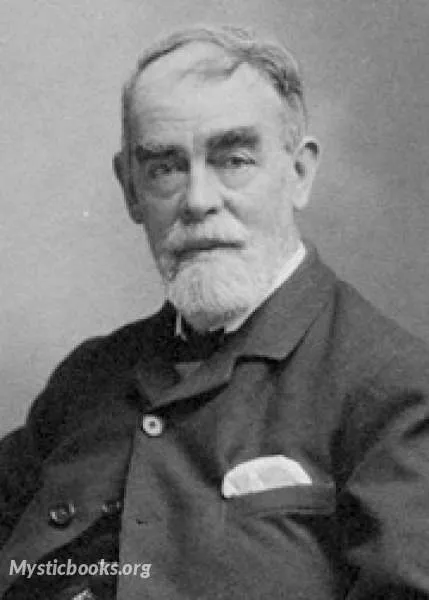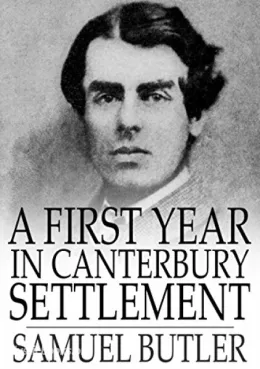
Timeline
Title
Country/Nationality
Samuel Butler
Samuel Butler was an English novelist and critic. He is best known for the satirical utopian novel Erewhon (1872) and the semi-autobiographical The Way of All Flesh, published posthumously in 1903. Both have remained in print ever since. In other studies he examined Christian orthodoxy, evolutionary thought, and Italian art, and made prose translations of the Iliad and Odyssey that are still consulted today.
Butler was born on 4 December 1835 at the rectory in the village of Langar, Nottinghamshire. Samuel Butler's relations with his parents, especially with his father, were largely antagonistic. His education began at home and included frequent beatings, as was not uncommon at the time. Samuel wrote later that his parents were "brutal and stupid by nature".He was sent to Shrewsbury at the age of twelve, where he did not enjoy the hard life under its then headmaster, Benjamin Hall Kennedy, whom he later drew as "Dr Skinner" in The Way of All Flesh. Then in 1854 he went up to St John's College, Cambridge, where he obtained a first in Classics in 1858. (The graduate society of St John's is named the Samuel Butler Room (SBR) in his honour.)
After Cambridge, he went to live in a low-income parish in London 1858–1859 as preparation for his ordination into the Anglican clergy; there he discovered that infant baptism made no apparent difference to the morals and behaviour of his peers and began questioning his faith. This experience would later serve as inspiration for his work The Fair Haven. Correspondence with his father about the issue failed to set his mind at peace, inciting instead his father's wrath. As a result, he emigrated in September 1859, on the ship Roman Emperor to New Zealand.
Butler went there, like many early British settlers of materially privileged origins, to put as much distance as possible between himself and his family. He wrote of his arrival and life as a sheep farmer on Mesopotamia Station in A First Year in Canterbury Settlement (1863), and made a handsome profit when he sold his farm, but the chief achievement of his time there consisted of drafts and source material for much of his masterpiece Erewhon.
Erewhon revealed Butler's long interest in Darwin's theories of biological evolution. In 1863, four years after Darwin published On the Origin of Species, the editor of a New Zealand newspaper, The Press, published a letter captioned "Darwin among the Machines", written by Butler, but signed Cellarius. It compares human evolution to machine evolution, prophesying that machines would eventually replace humans in the supremacy of the earth: "In the course of ages we shall find ourselves the inferior race". The letter raises many of the themes now debated by proponents of the technological singularity, for example that computers evolve much faster than humans and that we are racing toward an unknowable future through explosive technological change.
Butler also spent time criticising Darwin, partly because Butler (living in the shadow of a previous Samuel Butler) believed that Darwin had not sufficiently acknowledged his grandfather Erasmus Darwin's contribution to his theory.
Butler returned to England in 1864, settling in rooms in Clifford's Inn (near Fleet Street), where he lived for the rest of his life. In 1872, the Utopian novel Erewhon appeared anonymously, causing some speculation as to the identity of the author. When Butler revealed himself, Erewhon made him a well-known figure, more because of this speculation than for its literary merits, which have been undisputed.
He was less successful when he lost money investing in a Canadian steamship company and in the Canada Tanning Extract Company, in which he and his friend Charles Pauli were made nominal directors. In 1874 Butler went to Canada, "fighting fraud of every kind" in an attempt to save the company, which collapsed, reducing his own capital to £2,000.
Butler indulged himself, holidaying in Italy every summer and while there, producing his works on the Italian landscape and art. His close interest in the art of the Sacri Monti is reflected in Alps and Sanctuaries of Piedmont and the Canton Ticino (1881) and Ex Voto (1888). He wrote a number of other books, including a less successful sequel, Erewhon Revisited. His semi-autobiographical novel, The Way of All Flesh, did not appear in print until after his death, as he considered its tone of satirical attack on Victorian morality too contentious at the time.
Butler died on 18 June 1902, aged 66, in a nursing home in St. John's Wood Road, London. By his wish, he was cremated at Woking Crematorium and by differing accounts, his ashes dispersed or buried in an unmarked grave.
Books by Samuel Butler

Erewhon
Erewhon: or, Over the Range is a novel by Samuel Butler which was first published anonymously in 1872, set in a fictional country discovered and explored by the protagonist. Butler meant the title to be understood as the word "nowhere" backwards even...

A First Year in Canterbury Settlement
In "A First Year in Canterbury Settlement," take a leap back in time to the raw, untamed days of European colonization in 19th-century New Zealand. Samuel Butler, the keen-eyed narrator and pioneer, shares a riveting tale of survival, adaptation, and...

The Note-Books of Samuel Butler
Step into the captivating world of Samuel Butler's "The Note-Books," a collection of insightful observations, philosophical musings, and personal reflections penned by the renowned author and thinker. This treasure trove of literary gems offers a gli...

Way of All Flesh
The Way of All Flesh (1903) is a semi-autobiographical novel by Samuel Butler which attacks Victorian-era hypocrisy. Written between 1873 and 1884, it traces four generations of the Pontifex family. It represents the diminishment of religious outlook...